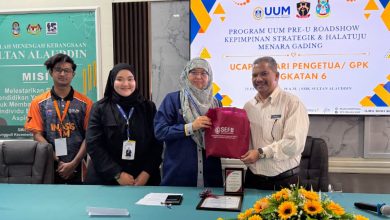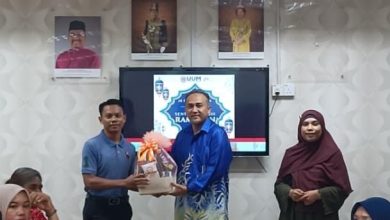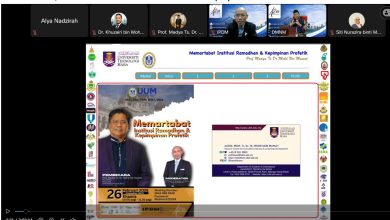Developing Integrity Among Public Servants
SINTOK, 18 June 2025 – The Integrity Talk programme featuring the Chairman of the Universiti Utara Malaysia (UUM)Board of Directors, has revitalised the commitment to public service and broadened perspectives on governance grounded in excellence and a culture of integrity.
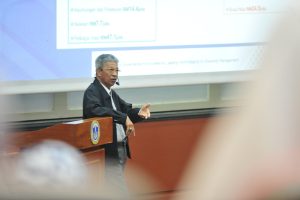
The Chairman of UUM Board of Directors (LPU), Tan Sri Datuk Wira Dr. Mohd Shukor Mahfar, shared valuable insights, experiences, and the university’s strategic direction within the framework of integrity and sustainable governance.
He emphasised that integrity is demonstrated through honesty, discipline, adherence to moral and ethical principles as well as consistent commitment to doing what is right, even in the absence of oversight.
“Integrity encompasses the commitment to honesty in both communication and behaviour, the fair and transparent management of entrusted authority, the avoidance of using one’s position for personal advantage, adherence to laws, policies, and established procedures, and the making of decisions based on facts and justice, free from external influence.
“We are all public servants. As such, we are obligated by regulations that require us to uphold integrity at all times.
“Integrity is a discipline in which its interpretation may change over time,” he said during his talk entitled “Strengthening Governance for Excellence: Leading with Integrity in University Management,” held at Seminar Hall A, UUM Convention Complex yesterday.

Prior to the talk, a pledge of integrity was recited by UUM key office bearers and officially handed over by Vice-Chancellor, Prof. Dato’ Dr Mohd Foad Sakdan to Tan Sri Datuk Wira Dr. Mohd Shukor.
He emphasised that although integrity is often associated with adherence to legal and organisational policies, it fundamentally begins with individual’s attitude.
“When each member of an organisation demonstrates honesty, accountability, and denounces misconduct, a shared culture of integrity will inherently develop.
“This culture is not established through simple instructions, but rather through exemplary and consistent daily practices,” he said.
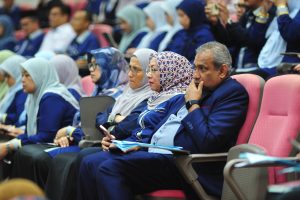
Therefore, according to him, leadership attitude plays a critical role in shaping an integrity-driven culture. When leaders demonstrate firmness in ethical matters, impartiality and consistency in their actions, it encourages subordinates to emulate these qualities.
“When entrusted with leadership, we must be firm. Otherwise, meetings may conclude without resolutions. I have also asked the legal department to advise the LPU professionally, without fear or favour, including in matters of expenditure, operations, and decision-making,” he added.
He noted that LPU’s agenda is centred on five key focus areas: Financial sustainability, Human resource and infrastructure development, Academic excellence, Sound governance, and Subsidiary integrity.
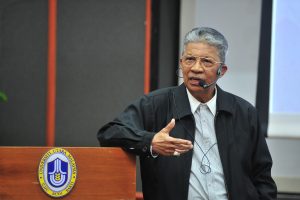
“These five pillars are closely monitored during LPU meetings to ensure the achievement of KPIs and continued success as outlined in Phase Three of the University Strategic Plan. Although we have not achieved perfection, we remain dedicated to ongoing enhancement,” he said.
He further explained that effective governance ensures transparency in decision-making, prevents abuse of power, and curbs misconduct.
Therefore, he emphasised that senior management must play a key role in cultivating an ecosystem of integrity among staff and students.
According to him, developing a culture of integrity extends beyond merely organising courses or introducing policies, but it begins with instilling positive attitudes in every individual, from top leadership to ground-level implementers.


